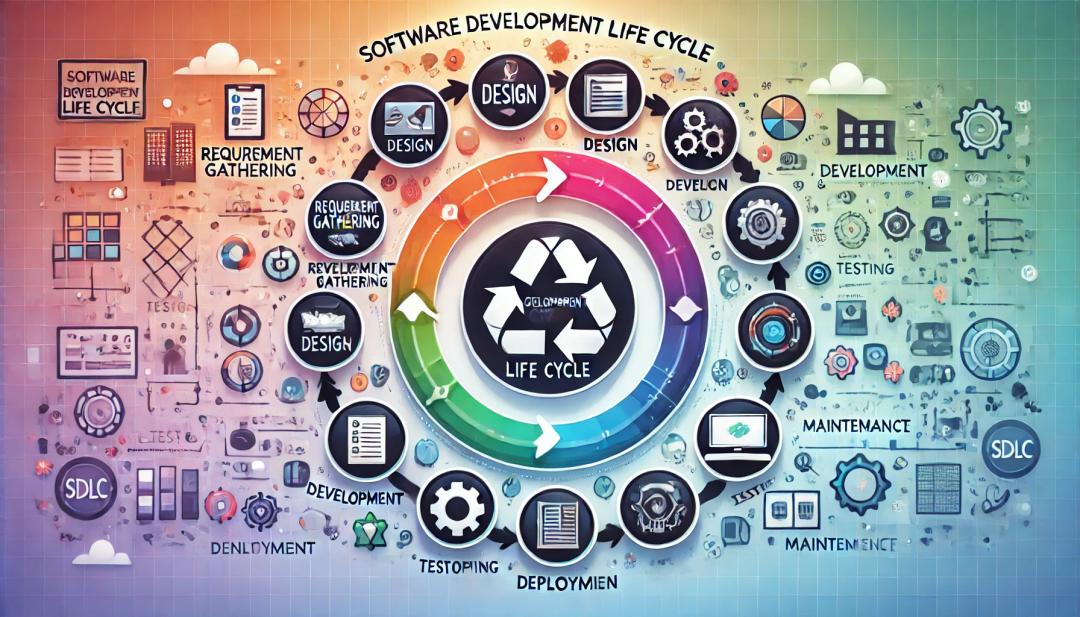Blog Details
DataOps vs DevOps: A
Comprehensive Comparison for Informed Decision-Making

Modina Sharif Raisa
09 Feb 2024
3 min read
Introduction
In today's rapidly evolving tech landscape, software development methodologies play a crucial role in ensuring efficiency, reliability, and innovation. Two prominent methodologies that have gained traction in recent years are DataOps and DevOps. While both aim to streamline processes and improve collaboration within organizations, they address distinct aspects of the software development lifecycle. In this article, we'll provide a comprehensive comparison of DataOps and DevOps to help you make informed decisions for your organization.

DataOps
DataOps is a methodology focused on streamlining and automating data analytics and management processes. It aims to improve the agility, quality, and reliability of data analytics by applying principles and practices inspired by DevOps to the realm of data.
Key Features of DataOps
1. Collaboration: DataOps emphasizes collaboration among data engineers, data scientists, and other stakeholders involved in the data lifecycle. By breaking down silos and fostering cross-functional teams, DataOps accelerates the delivery of insights and data-driven decisions.
2. Automation: Automation is central to DataOps, enabling the seamless integration, testing, and deployment of data pipelines and analytics workflows. Automated testing, monitoring, and versioning ensure data quality and reliability, reducing the risk of errors and inconsistencies.
3. Continuous Integration and Deployment (CI/CD): DataOps embraces CI/CD principles to facilitate rapid and reliable delivery of data analytics solutions. By automating the deployment of data pipelines and models, organizations can iterate quickly and respond to changing business needs more effectively.
4. Version Control: Version control is essential in DataOps for tracking changes to data pipelines, models, and datasets. Git-based version control systems enable teams to collaborate, track changes, and roll back to previous versions if needed, ensuring data integrity and reproducibility.
5. Monitoring and Governance: DataOps emphasizes monitoring and governance to ensure the reliability, security, and compliance of data analytics processes. By implementing robust monitoring tools and governance frameworks, organizations can proactively identify issues, enforce data policies, and mitigate risks.

DevOps
DevOps is a cultural and technical approach to software development that emphasizes collaboration, automation, and continuous delivery. It aims to break down silos between development and operations teams, enabling faster and more reliable software delivery.
Key Features of DevOps:
1. Culture: DevOps fosters a culture of collaboration, transparency, and shared responsibility across development, operations, and other stakeholders. By promoting a "you build it, you run it" mindset, DevOps encourages ownership and accountability throughout the software lifecycle.
2. Automation: Automation is at the core of DevOps, enabling the rapid and repeatable delivery of software solutions. Continuous integration, delivery, and deployment pipelines automate code integration, testing, and deployment, reducing manual effort and accelerating time to market.
3. Infrastructure as Code (IaC): DevOps promotes the use of infrastructure as code (IaC) to automate the provisioning and management of infrastructure. By defining infrastructure configurations in code, organizations can treat infrastructure changes like software changes, enabling versioning, testing, and automation.
4. Monitoring and Feedback: DevOps emphasizes monitoring and feedback to ensure the reliability and performance of software applications. Continuous monitoring of infrastructure, applications, and user experience provides real-time insights, enabling teams to identify issues, optimize performance, and iterate on solutions.
5. Security: Security is a fundamental aspect of DevOps, integrated throughout the software development lifecycle. DevSecOps practices embed security into every stage of development and operation, incorporating security testing, compliance checks, and vulnerability scanning into automated pipelines.
Comparison
While both DataOps and DevOps share common principles such as collaboration, automation, and continuous delivery, they focus on different aspects of the software development lifecycle:
1. Scope: DataOps is specifically tailored for data analytics and management processes, whereas DevOps encompasses the entire software development lifecycle, including application development, deployment, and operations.
2. Tools and Technologies: DataOps relies on tools and technologies designed for data integration, processing, and analytics, such as data pipelines, ETL (Extract, Transform, Load) tools, and data governance platforms. DevOps utilizes a wide range of tools for infrastructure automation, CI/CD, version control, monitoring, and collaboration.
3. Culture and Collaboration: Both DataOps and DevOps promote a culture of collaboration and shared responsibility, but they may involve different stakeholders and teams. DataOps emphasizes collaboration among data engineers, data scientists, and business analysts, while DevOps focuses on collaboration between development, operations, and quality assurance teams.
4. Goals and Outcomes: The primary goal of DataOps is to accelerate the delivery of data analytics insights and improve the quality and reliability of data-driven decisions. In contrast, DevOps aims to enhance the speed, reliability, and scalability of software delivery, enabling organizations to innovate and respond to market changes more effectively.
Conclusion
In summary, while DataOps and DevOps share common principles and objectives, they address different aspects of the software development lifecycle. Depending on your organization's needs and priorities, you may choose to adopt DataOps, DevOps, or a combination of both methodologies to drive innovation and achieve business success.
At Mediusware , we understand the importance of selecting the right methodology for your software development projects. Whether you're looking to optimize your data analytics processes with DataOps or streamline your software delivery pipeline with DevOps, our experienced team is here to help. Contact us today to learn more about how we can support your journey towards digital transformation and success.
Modina Sharif Raisa'sblogs
Trendingblogs
Get the best of our content straight to your inbox!
Don’t worry, we don’t spam!















